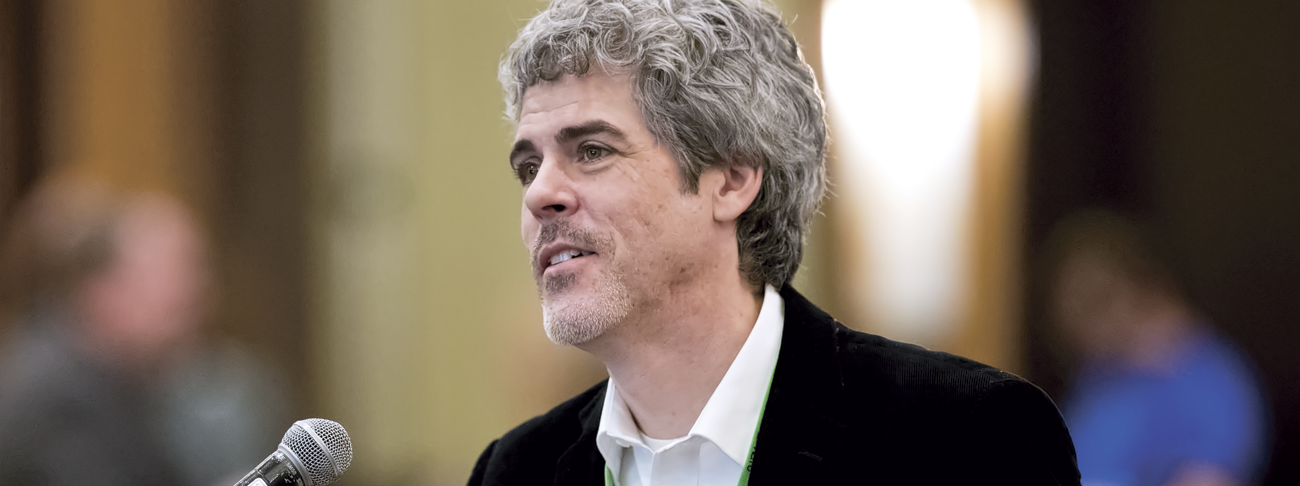
On Nov. 20, 2017, Ontario’s 12,000 college faculty, counsellors and librarians were legislated back to work, ending a five-week strike fighting for academic freedom, and against the rise of precarious employment in the province’s 24 public colleges. The Bulletin spoke with Martin Devitt, a professor in the School of Liberal Arts and Science at Niagara College who is president of his local and serves on the executive of the college division of the Ontario Public Service Employees Union.
In this round of bargaining, what were members’ top concerns?
We engaged all members through the 24 colleges, ranked their concerns, and academic freedom was number one, with job security, focused on contract faculty, number two. Contract academic staff currently comprise 75 to 80 per cent of all faculty, with full-time faculty reduced to under 25 per cent in the system. In the last decade, the number of full-time students has risen 20 per cent, CAS 36 per cent, administrators 56 per cent, and FT just 12 per cent. So we were asking for the ratio of FT to CAS be brought to 50-50, and that CAS get longer contracts with other job security improvements.
How does the lack of academic freedom affect the quality of college education in Ontario?
We need basic academic freedom allowing faculty to make decisions like controlling methods of evaluation, course resources, and course and program outcomes to ensure delivery of quality education. When even the grades are in the hands of managers, not faculty, then academic standards clearly suffer. At Conestoga College, deans can unilaterally overturn faculty grades. At Niagara College, faculty assigning grades are not involved in the grades appeal system. These examples of managerial control are at great cost to the integrity of the system and students’ learning.
During the strike, students and the public showed a great deal of support for your cause. Why do you think this was so?
It struck a note because students witnessed CAS without the time, resources, or compensation to teach their expertise, all while having to take on other work. Students are coming to colleges to get a quality education that will increase their chances of full-time employment. The jobs that colleges are offering to their faculty, counsellors and librarians are exactly the kinds of jobs our students are studying to avoid — insecure jobs with substandard wages, no benefits, and no pathway to full-time employment.
The college system is rapidly growing and its mandate becoming more complex. How do you see this playing out in Ontario?
Over the past decade, more colleges have assumed the work of universities, with more degree programs, and expanded areas of research, and yet we don’t have collegial, bi-cameral structures that protect academic standards like universities do. We have the expertise to deliver quality degree programs, with full transferability, but are struggling under continuously degrading academic conditions. We need to engage all stakeholders, colleges, universities and the Ontario government to ensure that we have the same basis of academic freedom underlying quality education across the post-secondary system.
During bargaining, what response did you receive from the College Employer Council?
A consistent call for concessions, with no caps on overtime, and removal of the maximum number of teaching weeks, which would further reduce the ratio of faculty. They want to increase their control and make it absolute. At the end of week three the council abruptly tabled a version of their previous offer containing the concessions, and forced a direct vote to members. They thought this would break the will and the solidarity of the members, but they calculated wrong. There was 95 per cent turnout, the largest ever using electronic voting in Canada, and 86 per cent rejected the offer. We were able to do this because of the solidarity on the picket lines, the commitment that FT and CAS faculty have for each other, and for quality education for our students.
You are now back to work, but where do you stand?
The animosity hasn’t resolved merely because the strike is over. The back-to-work legislation didn’t contain return to work policy or procedures. The old collective agreement was in place while the mediation-arbitration took place. All course outcomes must be met in the new time period, without reflecting how much extra work it will take or providing extra compensation. This has set off hundreds of grievances and workload complaints throughout the system. On Dec. 20, arbitrator William Kaplan issued his award, including contract language on academic freedom that will now allow faculty to speak freely about academic issues without fear of reprisal, improved job security for partial-load and full-time faculty and a new government-run task force that will make recommendations on faculty complement, precarious work, college funding, student success and governance issues. The award could have been reached at the bargaining table — and without the five-week strike that began Oct. 16 — if the colleges had displayed even the slightest concern for students and staff during negotiations.